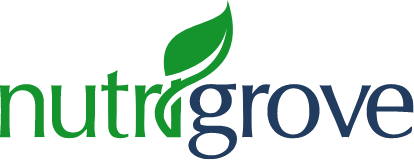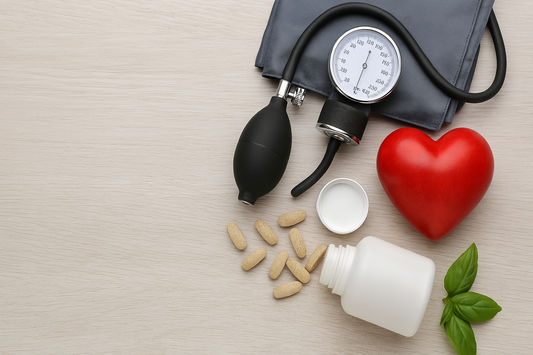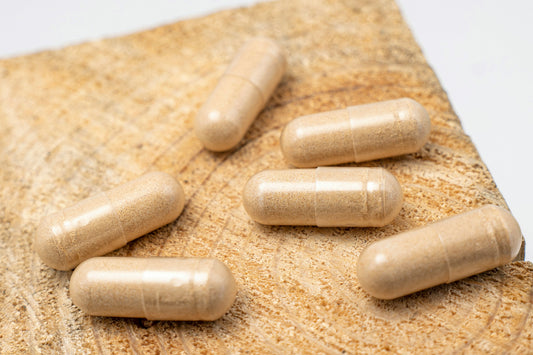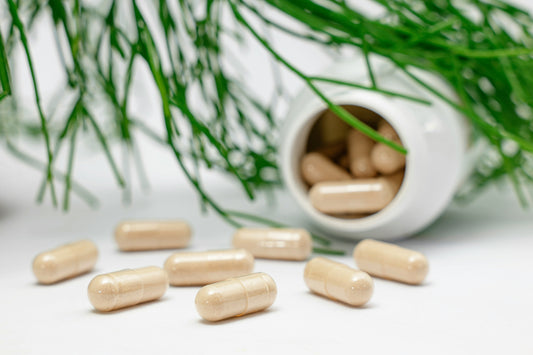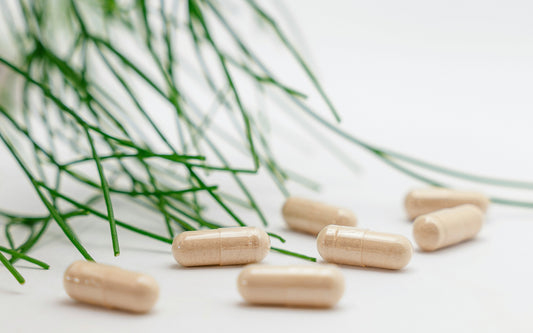Fix Hypertension Naturally
Hypertension, commonly known as high blood pressure, is a condition that affects millions of people worldwide. It is a serious health concern that can lead to various complications, including heart disease. However, there are natural remedies and lifestyle changes that can help manage hypertension effectively.
Key Takeaways:
- Lose weight to reduce the strain on your cardiovascular system.
- Exercise regularly to improve cardiovascular health and lower blood pressure.
- Adopt a healthy diet rich in fruits, vegetables, and whole grains.
- Reduce sodium intake to minimize water retention and lower blood pressure.
- Limit alcohol consumption to maintain healthy blood pressure levels.
By incorporating these natural remedies and lifestyle changes into your daily routine, you can take significant steps toward fixing hypertension naturally. However, it's important to consult with a healthcare provider for personalized advice and guidance throughout your journey to better manage your blood pressure.
Lifestyle Changes for Hypertension Control
Making certain lifestyle changes can have a significant impact on managing hypertension and improving overall health. Lowering blood pressure naturally is possible through a combination of these changes. Firstly, losing weight can help alleviate the strain on the cardiovascular system, resulting in lower blood pressure. Regular exercise is another crucial aspect, as physical activity promotes healthy blood flow and strengthens the heart.
One of the most effective ways to treat high blood pressure naturally is by adopting a healthy diet. Incorporating foods that are rich in potassium, such as fruits and vegetables, can help regulate blood pressure levels. Additionally, reducing sodium intake is crucial, as excessive sodium can contribute to hypertension.
To further enhance hypertension control, limiting alcohol consumption is essential. Alcohol has been linked to high blood pressure and can disrupt normal heart function. Quitting smoking is also vital, as smoking damages blood vessels and increases the risk of heart disease.
Moreover, getting adequate sleep and managing stress levels are crucial components of maintaining healthy blood pressure. Poor sleep can contribute to hypertension, while stress can lead to elevated blood pressure. By implementing stress-management techniques and ensuring sufficient rest, individuals can support their overall cardiovascular health.
Healthy Diet for Lower Blood Pressure
A nutritious diet plays a crucial role in maintaining optimal blood pressure levels and promoting heart health. Making smart food choices can help control hypertension and reduce the risk of cardiovascular diseases. Incorporating these dietary changes into your daily routine can have a positive impact on your blood pressure:
1. Eat a Well-Balanced Diet
Focus on consuming a variety of whole foods, including fruits, vegetables, whole grains, lean proteins, and healthy fats. These foods are rich in nutrients, such as potassium, magnesium, and fiber, which are beneficial in regulating blood pressure.
2. Reduce Sodium Intake
Limiting your sodium intake is essential for managing hypertension. Aim to consume less than 2,300 milligrams of sodium per day, and opt for low-sodium alternatives when possible. Be mindful of processed foods, as they often contain high levels of sodium.
3. Increase Potassium-Rich Foods
Increasing your intake of potassium can help counteract the negative effects of sodium on blood pressure. Include foods like bananas, sweet potatoes, spinach, and avocado in your diet to boost your potassium levels.
4. Limit Saturated and Trans Fats
Excessive consumption of saturated and trans fats can contribute to high blood pressure and heart disease. Focus on replacing these unhealthy fats with healthier options, such as mono- and polyunsaturated fats found in nuts, seeds, and olive oil.
Keep in mind that these dietary changes work best when combined with other lifestyle modifications and under the guidance of a healthcare provider. By adopting a healthy diet and making alternative methods for controlling hypertension part of your daily routine, you can improve your overall well-being and manage your blood pressure naturally.
Exercise for Hypertension Management
Engaging in regular physical activity is an effective way to lower blood pressure naturally and improve cardiovascular health. Exercise helps to strengthen the heart muscle, improve blood flow, and reduce the strain on the arteries, leading to lower blood pressure levels. It also helps to maintain a healthy weight and manage stress, both of which are important factors in controlling hypertension.
There are various efficient ways to incorporate exercise into your daily routine. Aerobic exercises such as brisk walking, jogging, swimming, and cycling are excellent choices for lowering blood pressure. Aim for at least 150 minutes of moderate-intensity aerobic activity or 75 minutes of vigorous-intensity aerobic activity every week. You can break it up into smaller sessions throughout the day if needed. Additionally, strength training exercises, such as lifting weights or using resistance bands, can also be beneficial in reducing blood pressure.
Remember to start slowly and gradually increase the intensity and duration of your workouts to avoid overexertion or injury. It's also important to listen to your body and choose activities that you enjoy, as this will make it easier to stick to a regular exercise routine. If you have any underlying health conditions or concerns, consult with a healthcare provider or a qualified fitness professional for personalized advice and guidance on the most suitable exercises for you.
Make Exercise a Priority
When it comes to managing hypertension, consistency is key. Make exercise a priority in your daily life by scheduling dedicated workout times and sticking to them. Consider finding an exercise buddy or joining a fitness class to stay motivated and accountable. Remember, even small increments of physical activity can make a difference in lowering blood pressure, so find opportunities to move throughout the day. Take the stairs instead of the elevator, go for a walk during your lunch break, or do some stretching exercises while watching TV.
Regular exercise, combined with other lifestyle changes, such as maintaining a healthy diet and managing stress, is the foundation for naturally reducing blood pressure and improving overall health. By making exercise a part of your routine, you can take control of your hypertension and pave the way for a healthier, more balanced life.
Importance of Sodium Reduction
Limiting sodium intake is crucial for maintaining healthy blood pressure levels and preventing hypertension-related complications. High levels of sodium in the diet can lead to water retention and increase blood volume, putting added pressure on the blood vessels and raising blood pressure. By reducing sodium intake, individuals with hypertension can effectively manage their condition and improve their overall cardiovascular health.
One of the easiest ways to reduce sodium intake is to limit the consumption of processed and packaged foods, as these often contain high amounts of added salt. Instead, opt for fresh, whole foods that are naturally low in sodium, such as fruits, vegetables, lean proteins, and whole grains. When cooking at home, use herbs, spices, and other flavor-enhancing ingredients to add taste to meals without relying on salt.
In addition to watching sodium intake, it's important to pay attention to hidden sources of sodium, such as condiments, sauces, and canned goods. Be sure to read food labels carefully and choose low-sodium or sodium-free options whenever possible. By being mindful of sodium consumption and making smart food choices, individuals can take control of their blood pressure and reduce their risk of hypertension-related complications.
Reducing Sodium Intake: Practical Tips
Here are some practical tips for reducing sodium intake:
- Choose fresh, whole foods over processed and packaged options.
- Cook meals at home using herbs, spices, and other flavor-enhancing ingredients.
- Read food labels carefully and opt for low-sodium or sodium-free alternatives.
- Avoid adding extra salt to meals and recipes; experiment with other seasonings instead.
- Limit the consumption of condiments, sauces, and canned goods, as these often contain high amounts of sodium.
By incorporating these tips into your daily routine, you can take proactive steps towards reducing sodium intake and managing healthy blood pressure levels naturally.
Alcohol and Hypertension
Drinking excessive alcohol can contribute to high blood pressure and increase the risk of cardiovascular diseases. When consumed in large amounts, alcohol can raise blood pressure levels, putting strain on the heart and blood vessels. It is particularly important for individuals with hypertension to limit their alcohol consumption in order to effectively manage their blood pressure.
Understanding the Link
Alcohol affects blood pressure by interfering with the body's natural mechanisms for maintaining a healthy cardiovascular system. Regular and excessive alcohol consumption can disrupt the balance of hormones and enzymes responsible for regulating blood pressure, leading to long-term complications.
Holistic Approaches to Hypertension
Adopting a holistic approach to hypertension management involves addressing the various lifestyle factors that contribute to high blood pressure. Limiting alcohol consumption is an essential component of this approach, alongside other lifestyle changes such as maintaining a healthy weight, engaging in regular physical activity, and following a balanced diet. By focusing on overall well-being and making positive changes, individuals can effectively manage their blood pressure without relying solely on medication.
It is important to consult with a healthcare provider for personalized advice and guidance on alcohol consumption and hypertension management. They can help determine the right amount of alcohol that is safe for an individual based on their specific health condition and circumstances.
Smoking Cessation for Blood Pressure Control
Quitting smoking is a crucial step towards fixing hypertension naturally and protecting overall cardiovascular health. Smoking not only damages the lungs but also has a detrimental effect on blood pressure. The chemicals in cigarettes can cause the blood vessels to narrow, leading to increased blood pressure and an increased risk of heart disease.
By quitting smoking, you are giving your body a chance to heal and recover. Within just a few weeks of quitting, you can experience improvements in blood pressure and heart health. Your blood vessels start to relax, reducing the strain on your heart and helping to lower your blood pressure.
It's important to remember that quitting smoking can be challenging, but there are resources available to help you. From support groups to nicotine replacement therapy, finding the right method for you can greatly increase your chances of success. Speak to your healthcare provider for personalized advice and guidance on quitting smoking and managing your blood pressure naturally.
Sleep and Stress Management
Adequate sleep and effective stress management are essential for maintaining healthy blood pressure levels and promoting overall well-being. When it comes to managing hypertension, getting a good night's sleep is crucial. Sleep deprivation or poor quality sleep can lead to increased blood pressure and a higher risk of developing cardiovascular problems.
The Importance of Sleep
During sleep, your body repairs and rejuvenates itself, including your cardiovascular system. It's recommended to aim for 7-9 hours of quality sleep per night. To improve sleep, establish a regular sleep schedule, create a relaxing bedtime routine, and create a sleep-friendly environment by keeping your bedroom cool, dark, and quiet.
Stress Reduction Techniques
Chronic stress can elevate blood pressure and contribute to hypertension. Finding effective stress reduction techniques can help manage blood pressure naturally. Consider incorporating activities such as deep breathing exercises, meditation, yoga, or engaging in hobbies that promote relaxation and mindfulness. It's also important to prioritize self-care, set realistic goals, and practice time management to reduce stress levels.
By prioritizing adequate sleep and effective stress management, you can significantly improve your blood pressure levels and overall health. However, it's important to consult with a healthcare provider for personalized advice and guidance, as each individual's needs may vary. Take proactive steps to manage hypertension naturally and reduce the risk of heart disease, leading to a healthier and more fulfilling life.
Blood Pressure Monitoring at Home
Monitoring blood pressure at home is an essential practice for individuals with hypertension to track their progress and ensure effective management. By regularly measuring your blood pressure in the comfort of your own home, you can gain valuable insights into how your lifestyle changes and treatments are impacting your blood pressure levels.
To monitor your blood pressure at home, you will need a reliable blood pressure monitor. These devices are readily available at pharmacies and online retailers. It is important to choose a monitor that is approved by medical professionals and has been validated for accuracy. Follow the instructions provided with the monitor to ensure correct usage.
When measuring your blood pressure, make sure you are in a calm and relaxed state. Sit in a comfortable position and support your arm at heart level. Take multiple readings at different times throughout the day, and record the results in a blood pressure log. This log will allow you to track any fluctuations and share valuable data with your healthcare provider during your appointments.
Remember that self-monitoring should not replace regular visits to your healthcare provider. It is important to consult with a medical professional to evaluate your readings and make any necessary adjustments to your treatment plan. Your healthcare provider can provide personalized advice and guidance based on your individual health condition.
Support System for Hypertension Management
Having a support system in place can greatly contribute to successful hypertension management and overall well-being. It is important to surround yourself with family and friends who understand your journey and are supportive of your efforts to lower blood pressure naturally. They can provide encouragement, accountability, and motivation, making it easier to adopt and maintain healthy lifestyle changes.
When seeking support from loved ones, it's essential to communicate your goals and challenges openly. Let them know about your commitment to managing hypertension naturally and the specific changes you are making in your daily life. This will help them understand the importance of their support and enable them to provide the necessary assistance.
In addition to friends and family, holistic approaches to hypertension management can involve seeking support from healthcare professionals, such as doctors, nutritionists, and mental health therapists. They can provide expert guidance, personalized advice, and additional resources to help you navigate the journey towards better blood pressure control. Many will recommend an all natural herbal blend to take daily like NutriGrove Blood Pressure Supplements

Setting up a Supportive Environment
Creating a supportive environment for hypertension management involves more than just relying on others for emotional support. It also means making necessary adjustments at home and in social settings to promote a healthy lifestyle. Encourage loved ones to participate in activities that promote good health, such as exercising together, cooking nutritious meals, or engaging in stress-reducing practices like meditation or yoga.
By promoting a holistic and supportive approach to hypertension management, you can ensure that you have the tools and encouragement needed to make positive changes and maintain long-term success. Remember, managing hypertension naturally is a journey, and having a strong support system can make that journey not only easier, but also more enjoyable.
Additional Natural Remedies for Hypertension
Alongside lifestyle changes, certain natural remedies like probiotics and maintaining a moderate weight can further aid in controlling blood pressure. Probiotics, which are beneficial bacteria that can be found in fermented foods like yogurt and sauerkraut, have been shown to have positive effects on blood pressure. These live microorganisms work by improving gut health and reducing inflammation, which can help lower blood pressure levels. Incorporating probiotic-rich foods into your diet can be a simple yet effective way to support overall cardiovascular health.
In addition to probiotics, maintaining a moderate weight is crucial for managing hypertension. Extra weight puts additional strain on the heart and blood vessels, leading to an increased risk of high blood pressure. By achieving and maintaining a healthy body weight, you can reduce the workload on your cardiovascular system and help lower blood pressure. Focus on adopting a balanced diet that includes plenty of fruits, vegetables, whole grains, and lean proteins, while also engaging in regular physical activity. This combination can contribute to weight management and better overall cardiovascular health.
Importance of Personalized Approach
It is important to note that every individual is unique, and what works for one person may not work for another. It is essential to consult with a healthcare provider or a registered dietitian before making any significant changes to your lifestyle or incorporating new natural remedies. They can provide personalized guidance and help determine the most suitable approach for managing your specific condition. They will consider factors such as your medical history, current medications, and any other underlying health conditions to develop a comprehensive plan that addresses your individual needs.
In conclusion, while lifestyle changes play a fundamental role in managing hypertension naturally, certain additional natural remedies like probiotics and maintaining a moderate weight can further enhance their effectiveness. Prioritize a balanced diet, regular exercise, stress reduction, and adequate sleep, alongside incorporating probiotics and achieving a healthy weight. Remember to consult with a healthcare professional to receive personalized advice and guidance for effective blood pressure control.
Conclusion
By implementing the recommended lifestyle changes and incorporating natural remedies, it is possible to effectively manage hypertension and improve overall health.
To fix hypertension naturally, there are several lifestyle changes that can be made. Losing weight, exercising regularly, and eating a healthy diet are crucial in reducing blood pressure and lowering the risk of heart disease. Additionally, reducing sodium intake, limiting alcohol consumption, and quitting smoking have proven to be effective in managing hypertension.
Getting adequate sleep and finding ways to reduce stress are also important factors in controlling blood pressure. Monitoring blood pressure at home provides valuable information for tracking progress and making necessary adjustments. Having a support system from family and friends can provide encouragement and guidance throughout the journey of managing hypertension naturally.
Furthermore, incorporating probiotics into the diet and maintaining a moderate weight have been shown to contribute to better blood pressure control. It is essential to consult with a healthcare provider for personalized advice and guidance tailored to individual needs and circumstances.
FAQ
Can hypertension be fixed naturally?
Yes, there are several lifestyle changes that can help manage hypertension naturally.
What are some natural remedies for hypertension?
Some natural remedies for hypertension include losing weight, exercising regularly, eating a healthy diet, reducing sodium intake, limiting alcohol consumption, quitting smoking, getting adequate sleep, reducing stress, monitoring blood pressure at home, seeking support from family and friends, incorporating probiotics into the diet, and maintaining a moderate weight.
How can I lower my blood pressure naturally?
Lowering blood pressure naturally can be achieved by making lifestyle changes such as losing weight, exercising regularly, eating a healthy diet, reducing sodium intake, limiting alcohol consumption, quitting smoking, getting adequate sleep, reducing stress, monitoring blood pressure at home, seeking support from family and friends, incorporating probiotics into the diet, and maintaining a moderate weight.
What role does a healthy diet play in controlling hypertension?
A healthy diet plays a crucial role in controlling hypertension. It is recommended to eat a diet rich in fruits, vegetables, whole grains, lean proteins, and low-fat dairy products. Limiting the intake of saturated and trans fats, cholesterol, and sodium is also important.
How often should I exercise to manage hypertension naturally?
It is recommended to engage in moderate aerobic exercise for at least 150 minutes per week or vigorous-intensity aerobic exercise for 75 minutes per week, along with muscle-strengthening activities at least twice a week.
How can I reduce my sodium intake?
To reduce sodium intake, it is important to read food labels, choose low-sodium or sodium-free products, limit processed and packaged foods, cook meals at home using fresh ingredients, and avoid adding salt to meals.
How much alcohol can I consume if I have hypertension?
It is recommended to limit alcohol intake to moderate levels, which is up to one drink per day for women and up to two drinks per day for men.
How does smoking affect blood pressure?
Smoking raises blood pressure and damages blood vessels, increasing the risk of hypertension. Quitting smoking can significantly improve blood pressure control.
How does sleep and stress management affect hypertension?
Sufficient sleep and stress management techniques, such as deep breathing exercises, meditation, and regular relaxation, can help lower blood pressure and improve overall cardiovascular health.
How can I monitor my blood pressure at home?
To monitor blood pressure at home, you can use a home blood pressure monitor. It is important to follow the instructions provided with the monitor and consult with your healthcare provider to ensure accurate readings.
Why is a support system important for managing hypertension naturally?
Having a strong support system, including family and friends, can provide emotional support and encouragement to make and maintain lifestyle changes for managing hypertension naturally.
Are there any additional natural remedies for hypertension?
Additional natural remedies for hypertension include incorporating probiotics into the diet and maintaining a moderate weight, as both have shown positive effects on blood pressure control.
Source Links
- https://www.mayoclinic.org/diseases-conditions/high-blood-pressure/in-depth/high-blood-pressure/art-20046974
- https://www.hopkinsmedicine.org/health/conditions-and-diseases/high-blood-pressure-hypertension/natural-ways-to-lower-blood-pressure
- https://www.healthline.com/health/high-blood-pressure-home-remedies
